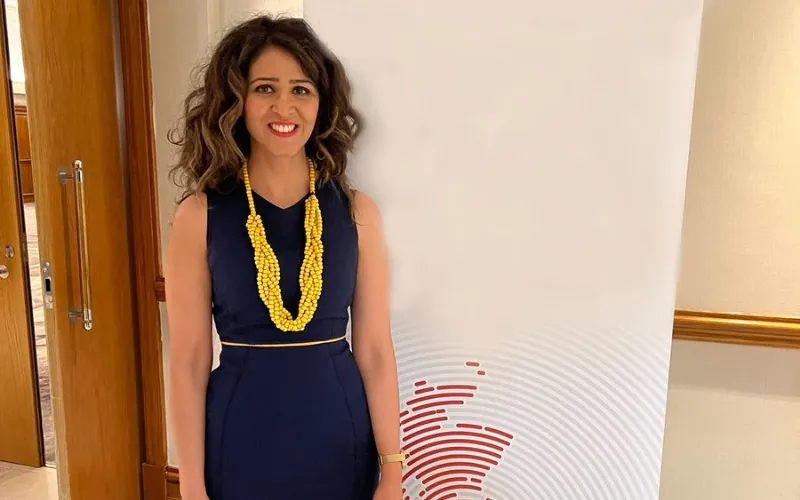How many businesses are paying lip service to diversity & inclusion?
Simply saying that D&I is one of your values without fully understanding what these separate values mean – and embedding them within your operations – is a problem, says Beena Puri.
Puri, digital innovation & partnerships lead for the Greater Manchester Combined Authority, leads on the region’s digital inclusion strategy alongside GM Mayor Andy Burnham and its 10 local authority leaders.
“There is a problem with people saying that diversity & inclusion is embedded within their business, but their panels and their content are still reflecting a different view,” she told TechBlast at the Digital Transformation Expo (DTX) in Manchester.
“There are companies that don’t have best practice – no one is perfect – but I think you need to challenge that in the right way, particularly for those businesses that are coming here [to set up in GM].
“When we talk about ethical and responsible business, we understand that it’s a journey for many. There’s something to be said about moving towards progress, rather than perfection.”
D&I defined
Diversity is about recognising the benefit of a range of backgrounds and perspectives in decision-making, while an inclusive working environment is one in which everyone feels that they belong – without having to conform – and are able to contribute.
The Chartered Institute of Personnel and Development, a UK association for human resource management professionals, states that while UK legislation – covering age, disability, race, religion, sex and sexual orientation, among others – sets minimum standards, an effective inclusion and diversity strategy goes beyond legal compliance and seeks to add value to an organisation, contributing to employee wellbeing and engagement.
“Are you actually listening to your employees to understand their lived experience working in your organisation?” asks Puri. “Having a diverse workforce is not about tick-boxes: it’s good for business. But there are multiple things that we need to address.
“The danger is that it’s everyone’s problem, but no one’s owning it: is it the HR team’s problem? The line manager who’s the first touchpoint for staff? The recruitment agencies who are gatekeepers for people coming into the tech industry?
“Businesses also need to think about how they develop talent and leaders within their organisation. I think culture is a huge part of that: it’s not just about recruitment, it’s about retention.”
Unconscious bias
Puri featured in our sister publication BusinessCloud’s recent Top 50 North West Tech Transformers list.
She has worked in the videogames industry, the tech sector and was part of the founding team at innovation organisation The Federation’s equitable ‘tech for good’ community. Global software consultancy Thoughtworks has a base in The Federation building in central Manchester.
Puri says: “On unconscious bias, Amy Lynch, [head of D&I for Thoughtworks in the UK], said something interesting: ‘You’re not responsible for your first thought, but you’re responsible for your second thought – and your first action.’ I think that’s a very important thing to remember.
“I mentor young ladies at the start of their career and the same sorts of challenges come up. ‘How do I talk to my manager about salary? How do I use my voice? How do I recognise my own values?’
“It’s about how do you challenge the cultures and practices, such as being spoken over if you’re not getting recognition within your organisation?”
‘Ask a stupid question’
Excluding people through communication is part of that, Puri explains.
“When I’m explaining something, my measure is talking to my mum: could she understand what I am talking about? I used to work for a tech company that only spoke in abbreviations… it’s ridiculous, the sort of cultures that are allowed.
“People don’t like to question, but I’ve gotten to a point in my career where I’m not afraid to ask a stupid question because I guarantee a lot of people in the room will be thinking the same thing. We’re not going to get anywhere if we’re afraid to voice our thoughts and ask questions.”
She adds: “We all have a role in addressing diversity and inclusion within society, within our organisations, and especially within the tech industry. We’ve got to understand our role in this.
“It’s about progress, not necessarily about perfection: how do we use our levers in order to make a difference?”
‘The best tech talent in the world wants to live in a city that cares about its people and what you want to achieve as an organisation’ @AndyBurnhamGM closes @DTX360 and invites the world to join @greatermcr on our journey to drive our post-pandemic powerhouse #dtxmanchester pic.twitter.com/c5IgMogeMM
— Beena Puri (@buzzinbee3) April 28, 2022


